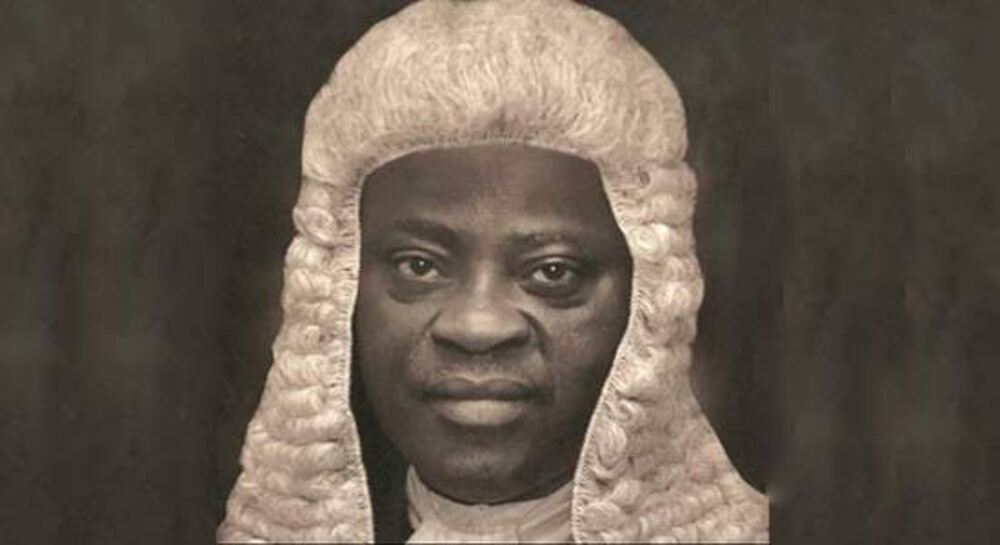FCT CJ Warns ICPC, EFCC, Others Against Plea Bargain Arrangements With Crime Suspects
The Chief Judge of the Federal Capital Territory High Court and Chairman of the Judicial Service Committee of the FCT, Justice Husseini Baba Yusuf, on Tuesday, cautioned prosecuting agencies against opting for plea bargain arrangements with crime suspects instead of proving allegations beyond reasonable doubt.
A plea bargain is an arrangement whereby a defendant admits to a crime in return for a lighter sentence than what is prescribed in the charge subject to the court’s approval.
Advertisement
The advice was given during the unveiling of the Plea Bargaining Guidelines For Federal Prosecutors 2023 and Sensitisation Workshop organized by the Federal Ministry of Justice.
The event was held at the Executive Lounge, NAF Conference Centre, Jabi, Abuja.
The CJ encouraged all stakeholders, especially the prosecuting agencies including the Economic and Financial Crimes Commission (EFCC) to make the best use of the plea bargaining document by effectively deploying it as power tool in the quest to set the administration of criminal justice in Nigeria on a path for permanent and sustained progress.
Yusuf, however, advised that the prosecution needs to prove their case against defendants.
Advertisement
“But in doing so, one must caution that the simplicity of plea bargaining should not be a motivating factor for prosecuting agencies in resorting to this process as a readily preferred option to securing convictions as against striving to discharge the burden of proof beyond reasonable doubt as required by law,” Yusuf added.
The CJ explained that the quality of a nation’s criminal justice system is a reflection of the measures put in place to ensure speedy and efficient judicial outcomes that stem the tide of reactionary forces.
“Arising from this near-sacred role therefore, it is all the more not in doubt that the efficiency of the court system is a prerequisite for development as it is on this essential pillar that other structures of the State stand.
“And for us therefore, the very idea of developing these Guidelines in accordance with the international best practices, to enhance the administration of criminal justice, is a good sign that we are on the right path,” the CJ added.
Speaking at the event, the Attorney-General of the federation and Minister of Justice, Lateef Fagbemi, a Senior Advocate of Nigeria, said the concept of plea bargaining is an important component of the administration of the criminal justice system, adding that it helps in the management of the caseload of prosecutors and enables the state to concentrate its limited resources on the cases considered more deserving of full prosecution.
Advertisement
The AGF said when a plea bargain is applied in compliance with stipulated guidelines, it can enhance the quick recovery of stolen assets and proceeds of crime.
He noted, however, that the practice of plea bargaining in serious cases involving a politically exposed person or high-net individual, is often misunderstood as a means of giving soft landing to individuals who have looted the resources of the State and commonwealth of the nation.
“This negative perception was more common prior to 2015 when there was no specific statutory provision regulating the practice of plea bargaining.
“Today, this perception has not significantly changed notwithstanding the provisions of section 270 of the Administration of Criminal Justice Act, 2015 and similar provisions in the Administration of Criminal Justice Laws of the various States of the Federation which now provide for plea bargaining,” Fagbemi said.
According to the AGF, this necessitated the need for standard guidelines for the implementation of plea bargaining provisions contained in Nigerian laws.
Fagbemi told stakeholders to note that the objective of the plea bargain guidelines guides parties in reaching an agreement that “is in the interest of justice, the public interest, public policy and the need to prevent abuse of legal process.”
Advertisement
“It is my conviction that these Guidelines will not only enhance public confidence in plea bargaining process in Nigeria, but will reduce case backlog and congestion of correctional centres, and ensure that the principles of accountability, equity, integrity and transparency are observed in the exercise of prosecutorial discretion on plea bargain, in line with international best practices, “the AGF said.



